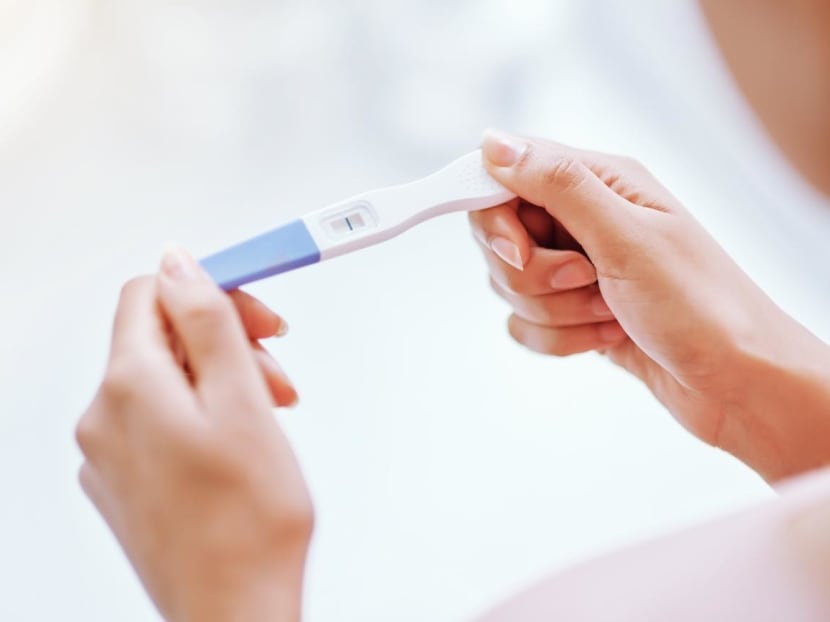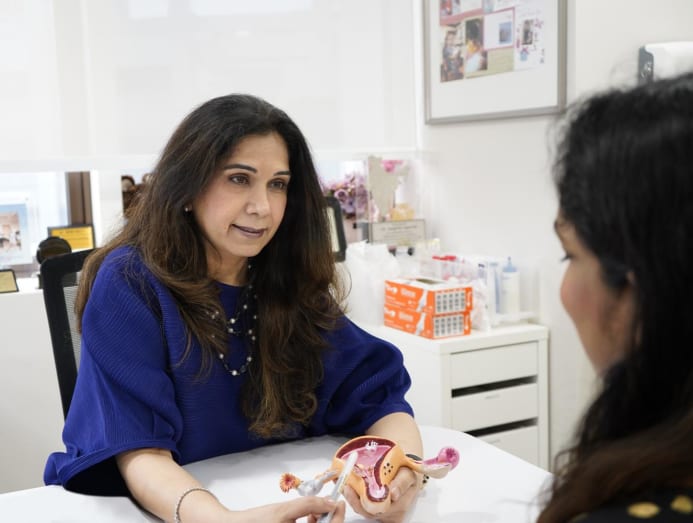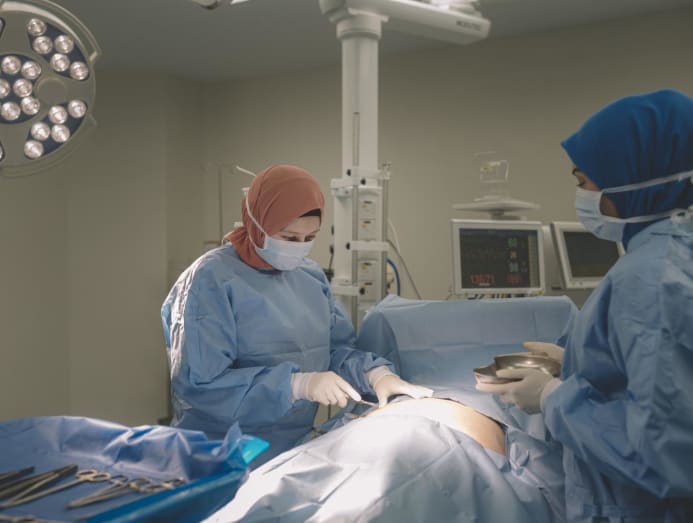The reality behind infertility: No single reason why a woman can’t get pregnant, multiple factors make it complex
A couple’s infertility can be a combination of physiological, lifestyle and medical factors, and fertility specialist Dr Anupriya Agarwal says a holistic approach is needed. This Infertility Awareness Week, CNA Women looks deeper into complex fertility issues.

It’s not just one thing, it may be many – an estimated two out of three couples struggling to have a baby experience complex fertility issues. (Photo: iStock/katleho Seisa)
The journey to parenthood is an exciting one but for some women, the path can be filled with sadness and frustration. One of the most challenging roadblocks is infertility, said fertility specialist Dr Anupriya Agarwal.
Infertility is the inability to conceive after trying for around 12 months, said the senior obstetrician and gynaecologist at Mount Elizabeth Medical Centre, adding that it is an issue that 15 per cent of couples in Singapore face.

The statistics, however, don’t offer the full picture.
“Couples struggling to conceive often assume there is a single, clear-cut reason for their difficulties,” said Dr Agarwal. “However, the reality is often much more complex, with multiple factors contributing to the issue – known as complex fertility issues.”
“In my practice, an estimated two out of three couples struggle to conceive because of complex fertility issues. They face a combination of different issues and all of them affect their fertility,” she added.
The couple may then need to take steps to address each issue before they can conceive.
DIFFERENT FACTORS ADD UP TO COMPLEX FERTILITY ISSUES

Often, there may be tell-tale signs in women who face complex infertility issues, said Dr Agarwal.
For example, if your menstrual cycle extends beyond the average 28 to 30 days, if the bleeding is so heavy that you need to change your sanitary napkin every two hours or less, or if you experience severe pain during your period or while having sex, you may have endometriosis or polycystic ovary syndrome.
Endometriosis is a condition where uterine tissue grows outside the uterus, while polycystic ovary syndrome is a hormonal disorder that affects egg development and release. Both gynaecological conditions have an impact on fertility.
Dr Agarwal added that some women, in addition to having either of these conditions, may also have blocked fallopian tubes, cysts in their ovaries, or problems with their uterine lining. All of which make getting pregnant even more challenging.
Some of these issues, such as cysts and blocked tubes, may not have noticeable signs or symptoms as they are usually painless. They happen beyond the woman’s control, and she only finds out when she visits her gynaecologist for an assessment after having trouble getting pregnant.
Other factors such as age, general health and poor lifestyle habits can worsen the issue.
Dr Agarwal said that as women age, they naturally produce fewer and lower-quality eggs, leading to a decline in fertility. Sometimes, a woman might also suffer from premature ovarian failure, where the ovaries stop functioning properly before the age of 40.

Physiological conditions and poor lifestyle habits combine to worsen hormone production and egg reserve, decreasing a woman’s chances of getting pregnant, said Dr Agarwal. And if both she and her partner share these habits, the likeliness of conception may be reduced even further.
Sometimes it really is neither the female’s nor the male’s fault, it’s just the way their bodies are or how they were born.
Having prior illnesses can also aggravate the impact of existing physiological and lifestyle factors. Dr Agarwal explained that medical treatments for conditions such as diabetes, thyroid disorders, autoimmune diseases and cancer may affect a woman’s hormone production and egg reserve.
She said: “There are just so many possible factors that can compound to contribute to a couple’s infertility, and sometimes it really is neither the female’s nor the male’s fault, it’s just the way their bodies are or how they were born – it’s why we need a holistic approach when helping the woman get pregnant.”
A HOLISTIC APPROACH TO INFERTILITY
If you and your husband have been trying for some time and not getting a positive pregnancy test result, it’s time to visit a gynaecologist for a comprehensive fertility assessment to determine what the possible issues – whether single or multi-factorial – could be, said Dr Agarwal.
Even if you do not have immediate plans to get pregnant, it’s a good idea to see your gynaecologist for a check-up. Whether you are set on being child-free or are still on the fence about children, being aware of your gynaecological health can benefit your overall well-being, sex life and physical health, said Dr Agarwal.
The couple with complex fertility issues will then have a clearer understanding of their options and the steps they can take to conceive, whether it is hormonal therapy or assisted reproductive technology like intrauterine insemination (IUI) or in-vitro fertilisation (IVF).

Even if a woman appears physically fit and has no obvious fertility problems such as irregular periods, regular check-ups can still help to identify hidden issues, such as the condition of her reproductive organs.
“Do not assume that being healthy immediately means being fertile, although it does help,” Dr Agarwal said.
Of course, infertility is not solely a woman’s problem. Dr Agarwal said that one-third of infertility cases are caused by female factors, another third by male factors, and the last third by both male and female factors.
In cases where the woman is found to be fertile but her male partner is facing severe issues such as abnormal sperm production or ejaculatory dysfunction, the couple may need to consult with a urologist to assess the situation before going for assisted reproduction.

Sometimes, the woman may require surgery. If she has an unusually large cyst in one of her ovaries, it would have to be removed. The ovarian cyst could hinder pregnancy or pose a risk to the developing foetus during pregnancy, Dr Agarwal explained.
Similarly, if an infection is discovered in one of her fallopian tubes or if the tubes are swollen or fully blocked, surgery may be required.
If a woman faces severe conditions that affect her ovaries, such as premature ovarian failure in addition to endometriosis, Dr Agarwal said the couple may decide to look for an egg donor.
Egg donation is allowed in Singapore, although not commonly practised, said the Women’s Health arm of Singapore Medical Group on its website; and this applies to both donating and receiving eggs.
Another option is a process called superovulation IUI. Dr Agarwal said this procedure involves the use of fertility medication to stimulate the ovary to produce multiple eggs during a single menstrual cycle, which may increase the risk of multiple pregnancies.

Part of the solution may not even be medical, Dr Agarwal said. For patients with lifestyle issues that affect their fertility, she recommends adopting a healthy and balanced diet, reducing smoking and alcohol consumption, and doing regular exercise to improve their overall health – and chances of conceiving.
Dr Agarwal also underlined how crucial it is for the couple to take care of their emotional well-being during their fertility journey, which can often be lengthy, frustrating and mentally draining.
Doctors can be more assuring and empathetic as they provide care in such a sensitive time, she said.
And if the couple requires more serious emotional help, she recommends that they see a therapist or psychiatrist that specialises in treating and supporting couples who struggle with infertility.
CNA Women is a section on CNA Lifestyle that seeks to inform, empower and inspire the modern woman. If you have women-related news, issues and ideas to share with us, email CNAWomen [at] mediacorp.com.sg (CNAWomen[at]mediacorp[dot]com[dot]sg).












